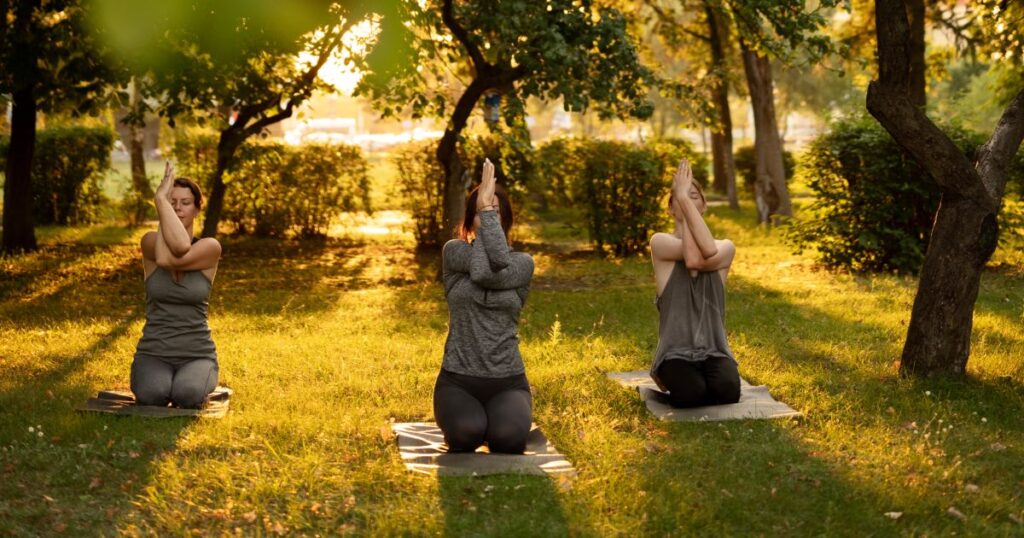In a world driven by urgency, where every ping and notification pulls us further away from ourselves, a quiet crisis is unfolding. We are mentally overstimulated, emotionally fatigued, and spiritually starved. People aren’t just looking to relax, they’re searching for meaning, depth, and reconnection.
A spiritual retreat is not a luxury. It’s a necessity for anyone feeling stretched thin by modern life. And in the calm of nature and the power of silence, something transformative begins to unfold.
The True Purpose of a Spiritual Retreat

Spiritual retreats are not escapes. They are intentional pauses designed to help you return to yourself. Unlike vacations, which often focus on entertainment or indulgence, a spiritual retreat invites you to explore your inner terrain.
This isn’t about fixing what’s broken. It’s about creating space for clarity, for listening, and for alignment. In traditions ranging from Tibetan Buddhism to indigenous earth ceremonies, retreats have always served as rites of recalibration. Silence allows insight to rise. Solitude reveals what noise conceals.
Types of Spiritual Retreats: Which One Speaks to You?
- Silent Meditation Retreats: Grounded in mindfulness and Vipassana practices, these retreats help participants detox from external noise and observe the inner dialogue that shapes their lives.
- Nature-Based Energy Healing Retreats: Held in forests, mountains, or near oceans, these experiences help you reconnect to natural rhythms and recalibrate your energetic field. Petra Frese often incorporates this in her sessions, combining intuitive guidance and environmental elements.
- Solitude Quests: Inspired by indigenous rites of passage, these involve extended time in nature with minimal contact. They are ideal for those navigating major life transitions.
- Trauma-Informed Women’s Retreats: Created to provide a nurturing and safe container for release, healing, and reclamation.
Each format offers something different. The right choice depends on what your soul is calling for.
Why Silence is the Missing Link in Personal Healing

We live in a world saturated with noise: notifications, opinions, expectations, and endless mental chatter. In this constant flood, silence can feel uncomfortable, even foreign. But what if that discomfort is precisely where the healing begins?
Silence isn’t just the absence of sound; it’s a powerful container for self-awareness. When you strip away external stimuli, you begin to notice what’s actually happening within you. Thoughts you’ve ignored surface. Emotions you’ve buried ask to be felt. The truth of who you are, not who you perform to be, starts to emerge.
Modern neuroscience supports this. Studies show that silence, especially in natural environments, activates the brain’s default mode network, a system associated with introspection, memory consolidation, and creativity. In silence, your mind reorganizes itself. You process past experiences, integrate insights, and access a deeper sense of meaning.
Many who attend silent spiritual retreats report not just peace, but profound shifts:
- Emotional blockages dissolve through quiet tears that come without warning
- Mental fog lifts, replaced by sudden clarity around decisions or life direction
- Anxiety lessens as the nervous system recalibrates into a parasympathetic (rest and digest) state
Silence slows you down, but it doesn’t stall your progress; it amplifies your growth. It allows you to hear the whispers of your soul, the wisdom that’s often drowned out by deadlines, obligations, and overstimulation. It’s in that quiet space that your true voice returns, your intuition strengthens, and your next steps begin to take shape, not from panic, but from purpose.
Working with a Spiritual Guide
Retreats can surface profound insights, but they can also bring up buried pain or confusion. This is why working with an experienced spiritual guide is so important. A guide helps you interpret emotional patterns, integrate energetic shifts, and apply retreat lessons to daily life.
Dr. Petra Frese, who blends neuroscience, energy healing, and spiritual coaching, often supports clients before, during, and after retreats to anchor what they experience. Having someone trained in both science and spiritual wisdom ensures you are held and guided through your evolution.
Is It Time for Your Retreat? Signs You Need a Spiritual Reset

- You feel emotionally flat or perpetually overwhelmed.
- You’re moving fast, but unsure of your direction.
- Your body feels exhausted despite sleep.
- You long for quiet, authenticity, and inner peace.
These aren’t just signs of stress. They’re invitations to pause, reflect, and realign.
Conclusion
Spiritual retreats are more than a trend. They are an ancient medicine for a modern world. Through nature, stillness, and skilled guidance, they offer a return, not to who you were, but to who you really are.
If you’re feeling the call to step away from the noise and rediscover your center, consider exploring spiritual retreats or working with a guide like Dr. Petra Frese. Because in the silence, something powerful begins to speak: your truth.

